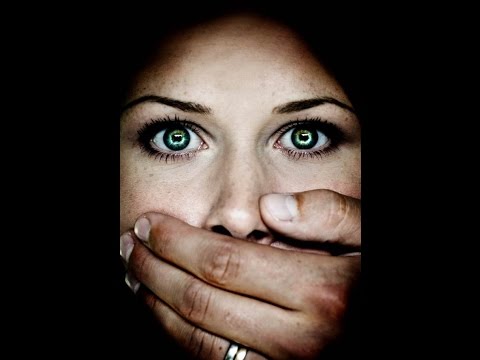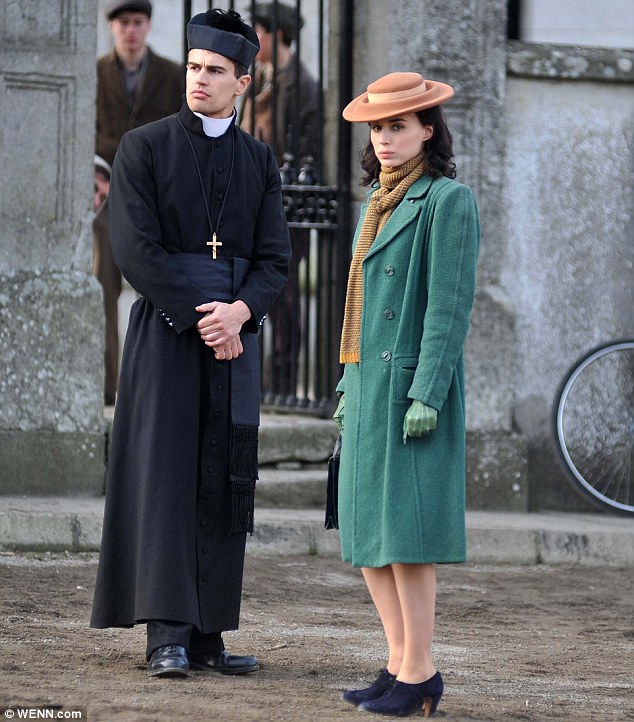Reading for Genre and Synthetic Register in The Secret Scripture
In his novel The Secret Scripture, Sebastian Barry skillfully navigates the fine line between honesty and deceit as he weaves a tale of past and present through the perspectives of Roseanne McNulty and Dr. Grene.
Throughout this novel, conventional form, which is a formal structure that is understood by a group of people, was evident. Such conventions are determined by generic expectations, which I found especially interesting in The Secret Scripture because usually there is something that is occurring in the present day that continues to feed into the genre. However, in this novel it seemed to me that the intersection between women’s sexuality and religion throughout history is what would cause books of this genre to continue to exist.
Oftentimes in history, women who were viewed as adulteresses were seen as less than by society, and sometimes characterized as insane, such as in Roseanne’s case. However, rarely were these women actually doing anything wrong. Most commonly, their actions, whether it be speaking to a man or something similar in nature, while innocent, were misconstrued as being inappropriate, and they were henceforth treated as unworthy by the authority figures in their society.
Such is the case in the novel when Roseanne meets a male acquaintance on top of a mountain to talk. When Father Gaunt sees her and reports it back to her husband, he gets their marriage annulled and the priest commands that she stay confined to her home for years at a time. Then, after Roseanne falls pregnant out of wedlock, her story becomes even more bleak as she is committed to a mental asylum under the guise of her being hysterical after giving birth.
It seemed to me as if a woman as strong as Roseanne, who had lost her father and whose mother had been committed to an insane asylum herself, would have fought harder against being institutionalized. However, in order for this novel to continue to fit into the genre, quietly conforming is exactly what she had to do in the situation. While fictional movies about women in history often end with oppressed women redeeming themselves and going on to live successful lives, that was not the case for many women. In order for this book to continue to follow the conventions of the genre, Roseanne had to go quietly to the asylum, choosing not to fight back against the patriarchy. For books within this genre to continue to be written, the oppression of women throughout history must continue to be a relevant topic of discussion.
Furthermore, as one can see throughout the novel, this is not something that would have happened to one of the male characters. This continues to follow the conventional form of the time period, which is that men were held to much more lenient standards than women. For example, when discussing the assault of a patient at the mental institution, it says:
All thoughts turn to John Kane because of course he has been implicated in such matters before, and let off.
pg. 163
It was very interesting to me that while Roseanne was unable to have a conservation with a man without being treated as a leper in society for the remainder of her life, John Kane, the asylum’s janitor, was believed to have violated an old woman and everyone had chosen to look the other way. He was still allowed to clean the women’s rooms, and was not punished in any way. This shows the dichotomy between men and women in the time period, and how when men did the wrong thing, other men tended to look the other way, while women were discredited for the rest of their lives.

The most evident of the substantive and stylistic features of the genre that together serve to respond to the recurring situation that I noticed when reading the text were the shifts in perspective from Roseanne to Dr. Grene. While Dr. Grene never seems to believe that Roseanne is actually disturbed, he chooses to rely on what Father Gaunt says about the matter. For example, in chapter sixteen Dr. Grene says:
I knew I could have asked her [Roseanne] anything, pursued any topic, and probably got the truth…
pg. 199
To me, this quote was especially interesting because it demonstrates that Dr. Grene views Roseanne as coherent and credible, yet continues to discredit her by his refusal to give up his hunt for her old medical records.
It could be argued that this plays into the role of women going unheard in the novel, since Dr. Grene valued words of a person who did not have the best interest of Roseanne at heart so much more highly than her own, despite her having lived the story. This overlooking of Roseanne’s memory further demonstrates that women were seen as less credible during the time period because of their gender and that the words of male authority figures were taken at face value. This pattern continues when after hearing from Father Gaunt that Roseanne had been unfaithful, Tom just completely disappears and never speaks to Roseanne again. For example, when Roseanne goes to the dance hall to see Tom after he does not come home for two days, this occurs:
When I entered the hall there were only a few souls dancing…The band played the song to the nearest ending, and stopped as well. Their faces looked round at Tom, to see what he wanted to do. Tom placed his instrument down with his usual care, stepped down off the stage, and swayed away backstage, to where our dressing room was.
pg. 206
That scene marks the last time Roseanne ever sees her husband, Tom. Rather than giving her the opportunity to explain herself, he chooses to allow their separation and subsequent annulment to be communicated to Roseanne through both his brother, Jack, and Father Gaunt. This once again demonstrates the convention that women’s words were meaningless when up against that of another man. Despite the fact that he should have trusted his wife more than anyone else, Tom chose to believe Father Gaunt because he was used to other men’s words carrying more weight than women’s.

By using alternating points of views, the author is able to demonstrate that while Roseanne is clearly of sound mind and is easily able to recount her story, she is constantly deemed to be mad or hysterical by male authority figures in her life, such as Father Gaunt, Old Man Tom, and Jack. As she moves through the novel, being repeatedly ordered around by these men, the author is able to demonstrate this recurring situation.
Based off of my current reading, I suspect that at the end of the novel we will find out that Roseanne was never actually mentally disturbed, and that Father Gaunt chose to crucify her because she had chosen not to marry the man he had chosen for her or convert to Catholicism. If I were able to speak back to the text, I would ask what Roseanne really had to lose by speaking up when she was sent to the asylum, and why she never fought harder to defend herself. I can understand her being resigned when the story as we know it begins, since she has been in a facility for sixty years, but I didn’t understand, with the exception of fitting into genre conventions, why she went so willingly to the asylum in the beginning.
I would also like to discuss where Butler’s concept of “The Rub” impacted me during my reading. Butler advises readers that “when you are inside your characters’ yearnings, whatever they’re feeling on way, going in one direction, showing certain attitudes, emotions — open your unconscious to the opposite; cut against the grain. Rub the thing that seems predictable.” I thought that it seemed predictable that when we reached the end of the novel, Roseanne would find her son, he would come see her in the nick of time, and she would find peace before passing away. However, therein lies “The Rub,” since this is not what happened. While Dr. Grene discovered who her son was, he chose not to tell Roseanne, effectively changing the expected course of the novel and denying Roseanne that peace.
This text made me wonder what choices I would have made if I were in a situation like Roseanne’s, and if I would have had more courage to fight for my freedom, or if I would have given in to the conventions of the genre.
Roseanne is an interesting character throughout the course of the novel. There is also a heavy religious theme present in the novel, as well as gender roles that are assumed which you touched on beautifully. A question I have for this post that maybe you could dive further into is: how does Roseanne fit the genre that is expected of women in gender roles throughout the story? Is religious faith related to this? is it not?
LikeLike
When you came to questioning the text, I agree with you completely. Like Professor Kopp mentions, I believe that she forgets what happens rather than following the interpretation. Fr. Gaunt has been a daunting figure throughout her entire life–ever since he made her father a rat-picker in the third chapter. I think the author is trying to provide us with insight on how we can forget about what has happened to us and the people on the outside world will do so as well. The author mentions in an interview that he was inspired to write this because one of his aunts were locked away and he knew nothing about her and it was like she was completely washed away. Fr. Gaunt I think is also a reflection on how religion and women were a very negative mix and how women were perceived as this evil entity if they are any other religion besides what the town consisted of. Which in this case is the entire country. According to history, there was a lot of conflict between Catholics and Protestants–and even though they have been coming out of that hole, religion always has a holding above other people’s heads. I think you have a great idea going here!
LikeLike
I fully agree with this ongoing theme of women’s sexuality and religion throughout The Secret Scripture. You’ve compared this mainly to women in history and how women were viewed previously, in contrast, I find this very accurate to current day. Do you find major similarities? I previously wrote an Op-Ed on my experiences with sexual harassment at my job when I was 17. During my research I found many articles on the “men’s suffering” during the MeToo campaign. In summary, people felt bad for the men who sexually harassed or assaulted women. You say, if this were a man (Roseanne) this wouldn’t be happening. I fully agree. Women are often held at different standards than a man, I find this to be a strong comparison throughout the novel. In addition, even in 2019, there is much debate and controversy from my experience in the Catholic church. There are news articles after news articles about sexual misconduct with Priest and children. I also find this to be an ongoing connection to The Secret Scripture. So in addition to this commarrison of the past, can we compare it to present day just as much? Maybe this becomes more relatable with that view point?
LikeLike